I know I’m very late to the party with Carol Dweck’s Growth Mindset theory; I kind of knew what it was but I became much more interested in the details as I was planning a lesson for my GCSE Psychology class. We watched an extract from her TED Talk and it really inspired me to try out some of the ideas with my form and then with older classes. I also loved seeing some of her experiments in practise, showing that children who are praised with the words, “you did so well, you must be really smart” took less risk and challenge, whereas children praised with the words, “you did so well, you put in a lot of effort” opted to try out some more challenging puzzles. It really made me think about how I praise and reward my students, and I’ll definitely be making changes to my practise.
I used our form period this morning to work through a powerpoint (see below) of images to generate discussion. The majority of the wording and scan images from my work are from the material from the Brainology Website which provides great material for schools. We started out by deciding whether the red statement or the blue statement was correct:
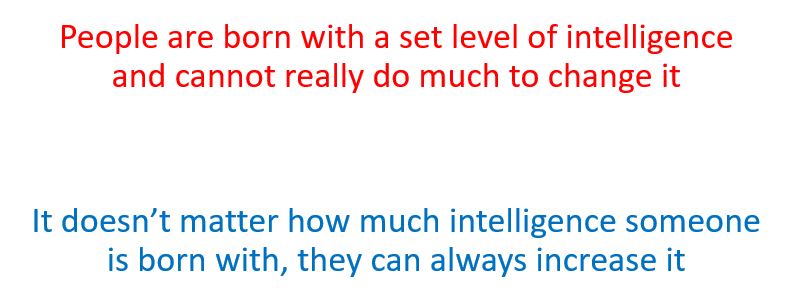
We then talked about the brain being like a muscle; the more it is used the more it will grow.
We also looked at a recent tweet by olympic gold medal hockey player, Samantha Quek, who saw a lone girl practising her shots in the cold and dark. It turned out that girl was Erica from our school! This really engaged the students. We discussed what made Erica a great hockey player; was she born that way or did she practise? They all agreed that Erica is fantastic due to the time and effort she puts in to her sport.
We then thought about how the brain actually works. The class had actually looked at the structure of neurones recently in their Biology class and we acted their role out by stretching out our arms to form connections. We talked about the connections being made more permanent by repetition.
We then discussed the evidence for this being correct. James in my form had also seen a great Youtube video (which he’s going to send me the link to) about London taxi drivers having physically enlarged brains due to their memory. They brought up the fact that parents are constantly teaching their babies new words and interacting with them which is what makes their brains develop. I explained the importance of taking responsibility for their own brain growth now they are older.
Next up we thought about what makes one person appear more intelligent than another person. We discussed the importance of challenging yourself to do harder and harder things, as doing the same easy thing all the time will not make new pathways between their neurones. They were quite shocked when I said that no-one should ever get 100% on a test; that’s the sign of a badly written test. There should always be something in there to really challenge them to make their brains grow.
Finally, we looked at the power of the word “YET” and some new ways of responding to set backs. It’s going to be really important that I embed the “YET” statement into everything I do with them from now on so this isn’t forgotten. This mindset has to be lived.
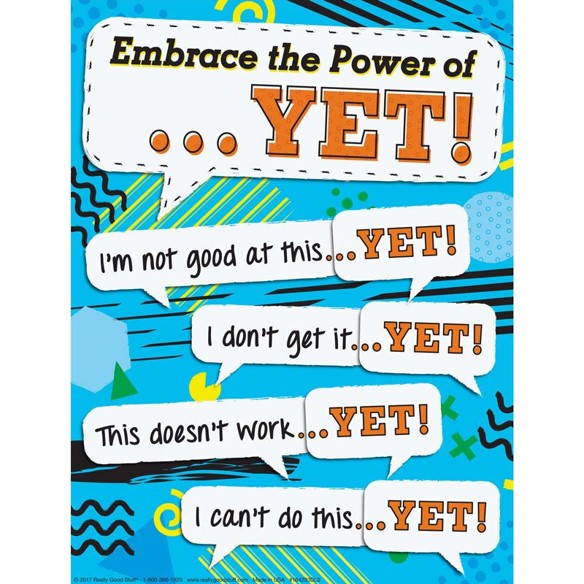
I then asked students to fill in a few boxes about what they learnt (see Word document below).
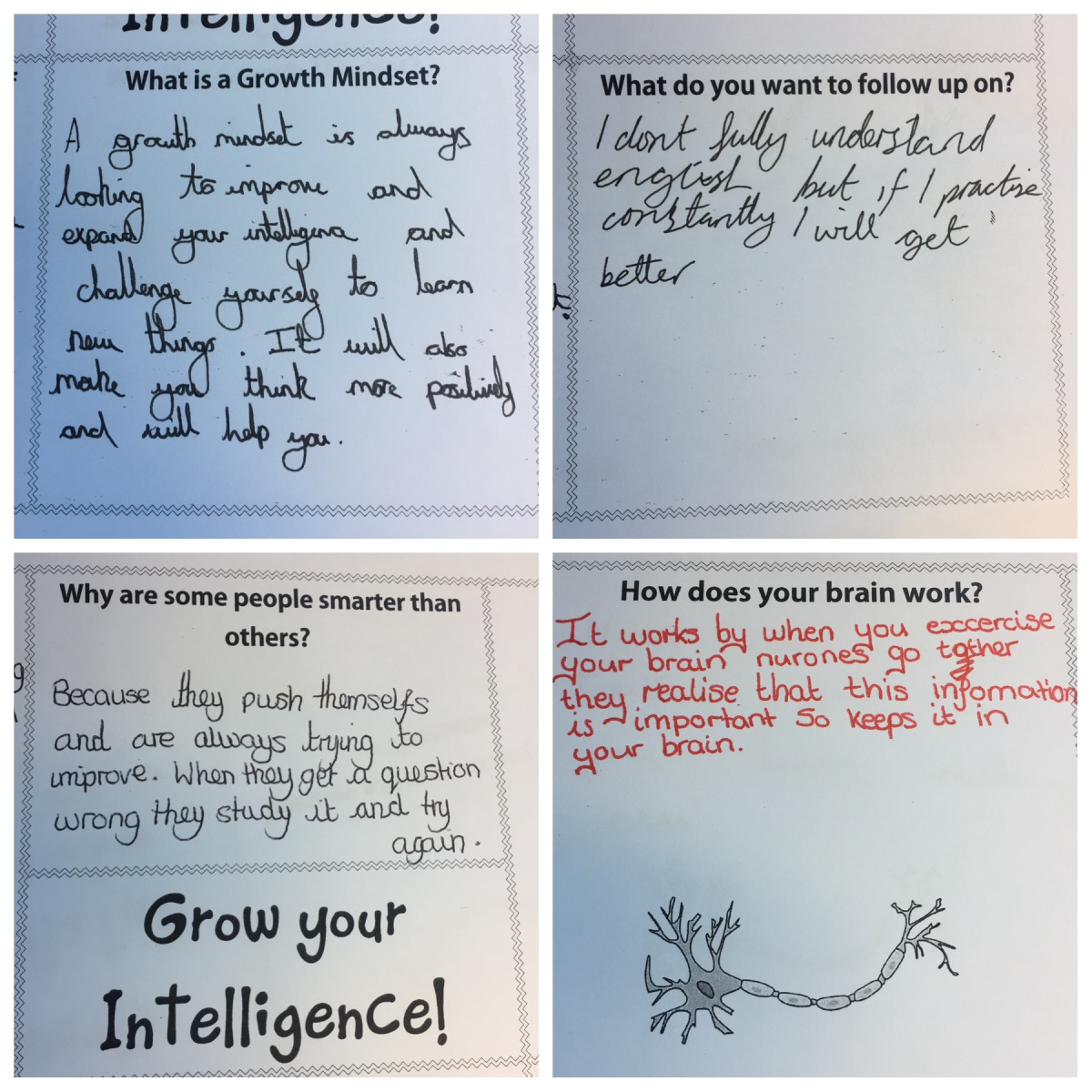
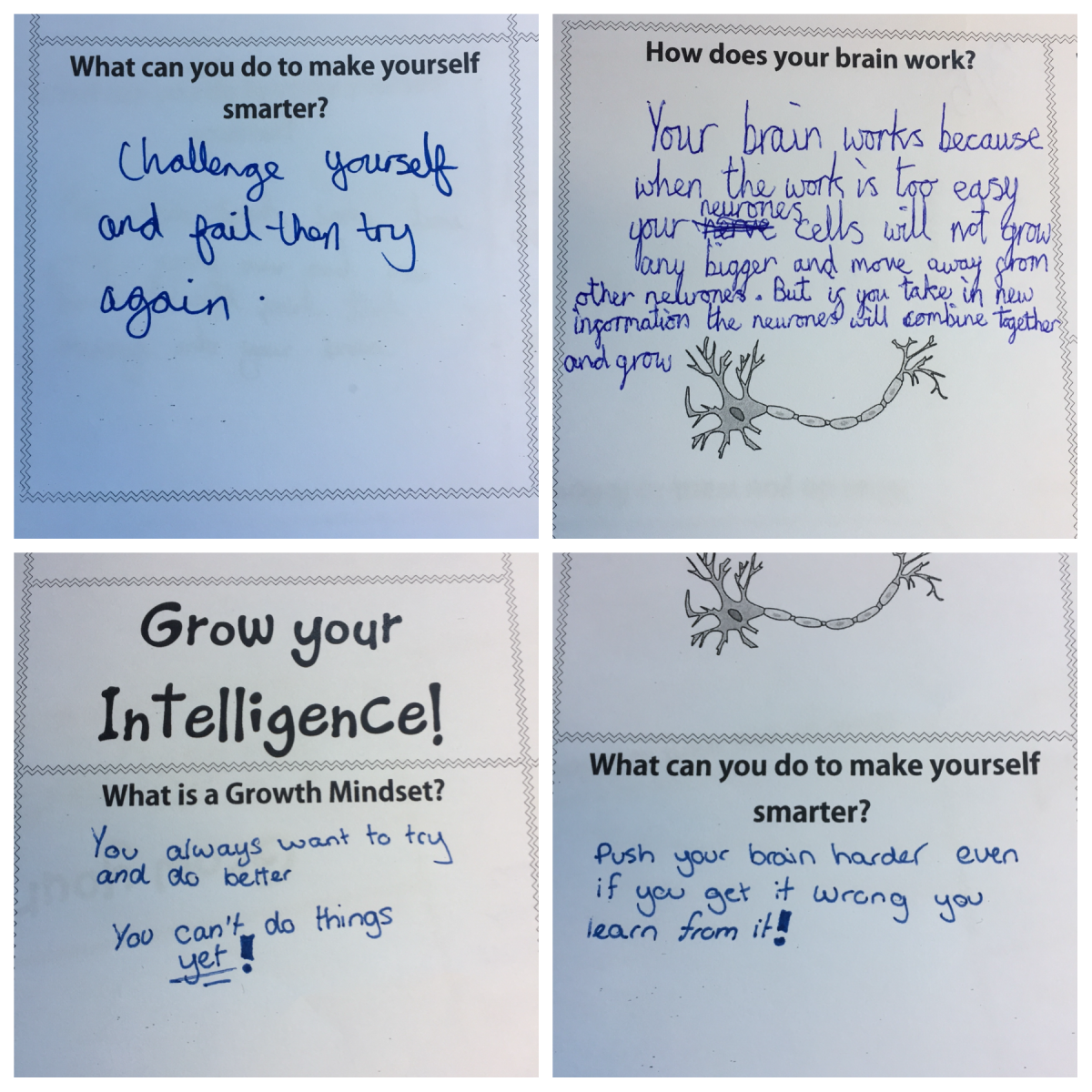
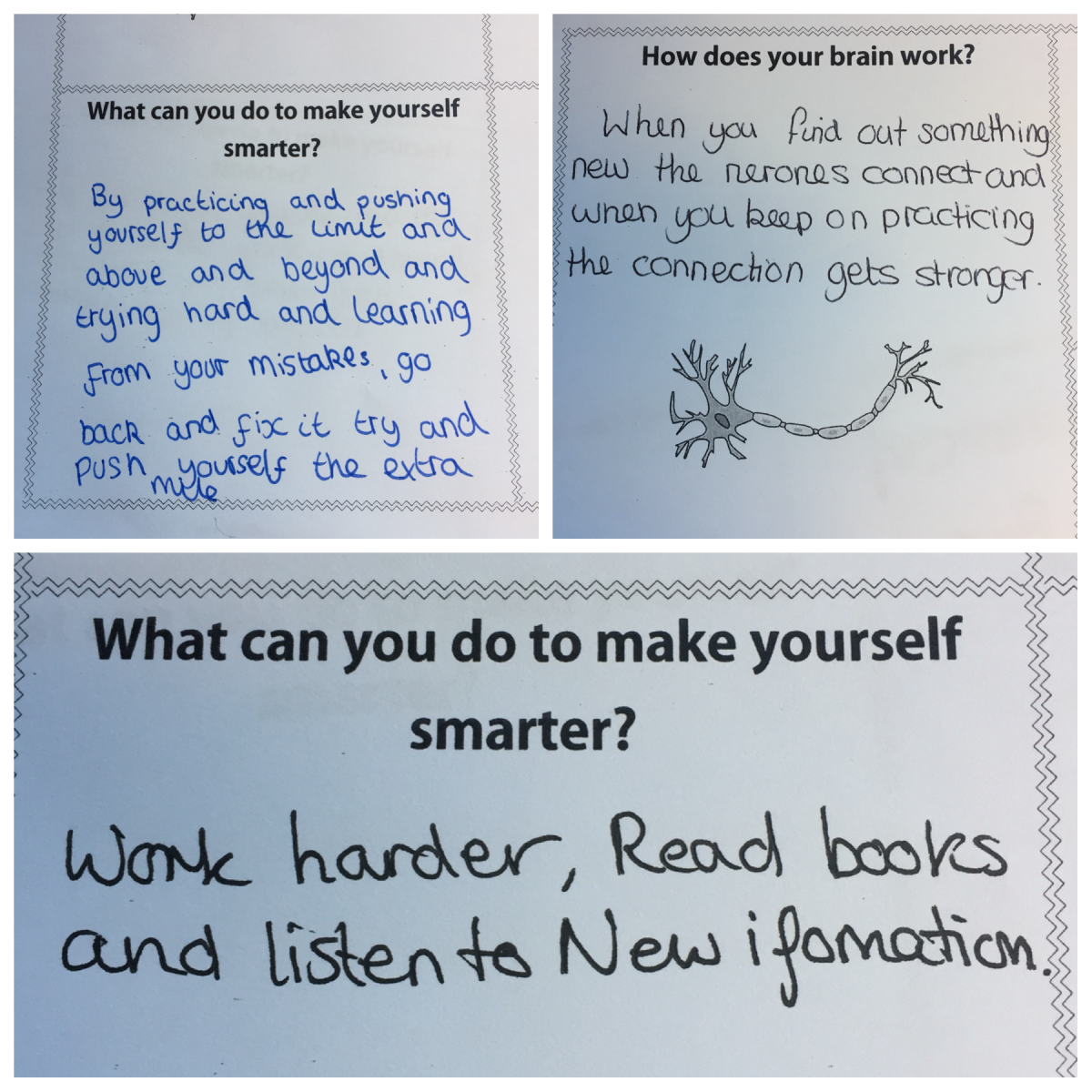
I’ve asked my form to finish off their sheet at home so that we can revisit it after half term. I’ve also laminated some of the images for the room room, but I’m well aware that Growth Mindset ideas need to be lived, not just stuck on a notice board! It’s something I need to keep banging on about, and expecting from them, as well as rewarding them when they live it. I loved teaching this lesson; it gave me a real buzz, and it was great to see how much the form were engaged in discussion. I hope it’s inspired them to grow their own brains!
Resources:











